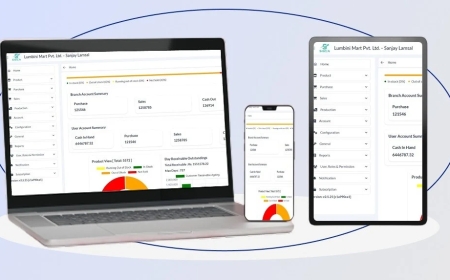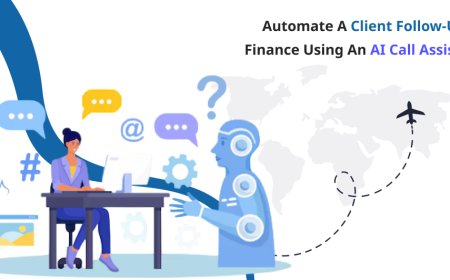The Importance of White Label Social Media Marketing for Digital Agencies
Discover how white label social media marketing helps digital agencies scale services, save costs, and boost client satisfaction.

In today's fast-paced digital world, businesses rely more than ever on social media to build their brand presence, engage with customers, and drive sales. As a result, digital marketing agencies face growing pressure to deliver high-quality, results-driven social media strategies. However, not every agency has the internal resources, time, or expertise to offer comprehensive social media services. Thats where white label social media marketing comes in.
White label social media marketing provides digital agencies with a powerful solution to scale their services without stretching their resources thin. By partnering with specialized providers who work behind the scenes, agencies can offer expert-level social media marketing under their own brand. This approach not only improves client satisfaction but also strengthens the agencys market position.
What is White Label Social Media Marketing?
White label social media marketing involves outsourcing social media services to a third-party provider who delivers the work under your agencys branding. The end client remains unaware that an external party created or managed their social media strategy. Agencies typically outsource tasks such as:
-
Content creation and scheduling
-
Community management
-
Social media advertising
-
Analytics and reporting
-
Influencer outreach
-
Platform-specific strategies (e.g., Instagram, TikTok, LinkedIn)
The third-party provider performs the work, while the digital agency focuses on client communication, strategy oversight, and relationship management.
Why Digital Agencies Need White Label Social Media Marketing
Digital agencies need white label social media marketing to scale efficiently, deliver expert services, and meet growing client demands.
1. Scalability Without Overhead
As an agency grows, client demands naturally increase. Hiring in-house staff to manage growing social media portfolios can become expensive and time-consuming. Agencies must invest in recruitment, training, and onboarding, not to mention benefits and salaries.
By partnering with a white label provider, agencies scale instantly. They handle more clients, enter new markets, and meet higher demand without increasing operational costs. The outsourced team absorbs the workload, allowing the agency to grow faster with fewer risks.
2. Access to Specialized Expertise
Social media marketing evolves constantly. Platforms update their algorithms, introduce new features, and shift audience behaviors. Staying current requires significant time and continuous education.
White label providers dedicate themselves exclusively to mastering social media. Their teams consist of specialists in content creation, paid advertising, community engagement, and analytics. By leveraging their expertise, agencies deliver higher-quality service and stay ahead of competitors.
3. Time Efficiency
Building a social media campaign from scratchcrafting content, scheduling posts, responding to followers, analyzing metricsrequires hours of labor. For busy agencies juggling multiple services, social media can drain valuable time.
White label social media services streamline workflows. Agencies offload time-consuming tasks and focus on high-impact activities like strategy, sales, and client relations. This improves productivity across the board.
4. Cost-Effective Growth
Hiring full-time employees for social media roles comes with high costs. Salaries, software, training, and infrastructure add up quickly. Freelancers may offer cheaper alternatives, but they often lack consistency and scalability.
White label providers offer predictable pricing models and consistent quality. Agencies pay only for the services they use, minimizing overhead while maximizing results. This allows small and mid-sized agencies to compete with larger firms without breaking the bank.
5. Increased Client Retention
Clients prefer agencies that offer comprehensive digital solutions. When agencies only handle a portion of a clients needs, they risk losing business to more full-service competitors.
White label partnerships empower agencies to expand their offerings without hiring new staff. With social media marketing as part of their suite, they become a one-stop shop for digital needs. This strengthens client relationships and boosts retention rates.
6. Faster Turnaround Times
Social media marketing demands speed. Trends come and go in hours. Delays in content delivery or campaign execution can cost clients visibility and engagement.
White label teams operate with refined processes, templates, and tools. They deliver content, campaigns, and reports promptly. Agencies meet deadlines consistently and impress clients with their responsiveness and professionalism.
How White Label Social Media Marketing Works
White label social media marketing works by outsourcing campaign execution to experts who deliver services under your agencys brand.
-
Client Onboarding: The agency signs a new client needing social media services.
-
Information Transfer: The agency gathers brand guidelines, goals, audience insights, and platform preferences.
-
Provider Briefing: The agency shares client information with the white label provider.
-
Service Execution: The white label team creates content, manages platforms, and runs ads.
-
Review & Approval: The agency reviews work before passing it to the client.
-
Client Delivery: The agency delivers completed work under its brand.
-
Performance Tracking: The provider supplies analytics; the agency presents results and insights to the client.
Throughout this process, the agency remains the face of the service, while the provider operates invisibly behind the scenes.
Key Benefits for Digital Agencies
Key benefits for digital agencies include scalability, expert support, cost savings, and enhanced client satisfaction through white label social media marketing.
A. Brand Integrity
White label providers never interact with the end client directly. All materialscontent, reports, communicationcarry the agencys branding. This maintains consistency and reinforces the agencys value.
B. Flexibility and Customization
White label services adapt to the agencys workflow. Whether an agency needs full-service management or support for specific platforms, the provider tailors their approach accordingly.
C. White Glove Client Experience
Agencies can focus on relationship management, consultations, and strategyareas that clients value most. This leads to a higher perceived value and stronger client satisfaction.
D. Risk Mitigation
Outsourcing reduces the risks associated with hiring, training, and retaining staff. If a campaign underperforms, the agency can quickly pivot providers instead of dealing with internal HR issues.
When Should an Agency Consider White Label Social Media Services?
Agencies should consider white label social media services when they want to expand offerings, scale quickly, or lack in-house expertise. Agencies should consider white label services when they:
-
Want to offer social media but lack internal capability
-
Struggle to manage increasing workloads
-
Experience inconsistent service quality from freelancers
-
Need to scale quickly to meet client demand
-
Want to boost profitability without expanding payroll
-
Aim to present themselves as full-service digital experts
White label solutions can serve as a stopgap or long-term growth strategy. They offer flexibility to scale up or down based on demand.
Choosing the Right White Label Partner
Not all white label providers deliver the same value. Agencies should evaluate potential partners based on:
-
Experience: Look for a proven track record in social media marketing across platforms.
-
Transparency: Choose a provider who offers clear workflows, timelines, and deliverables.
-
Quality Assurance: Assess the quality of their content, reporting, and platform knowledge.
-
Communication: Ensure responsive and reliable communication with dedicated points of contact.
-
Customization: Confirm that they tailor services to the agencys voice and the clients brand.
-
Confidentiality: Ensure they respect white label agreements and never disclose their role.
The right partner functions as an extension of the agency, helping deliver consistent excellence.
Real-World Examples
Consider an SEO-focused agency that wants to expand into social media without overhauling their business model. By outsourcing to a white label provider, they can add Instagram and LinkedIn content creation to their services. Clients receive holistic digital marketing, while the agency focuses on what it does best.
Or take a small web development firm that starts receiving requests for Facebook ad management. Without hiring a marketing team, they partner with a white label provider. Their clients get professionally managed ads, and the firm generates a new revenue stream.
Final Thoughts
White label social media marketing has transformed the way digital agencies scale, deliver value, and compete in a crowded marketplace. By outsourcing the execution while maintaining ownership of strategy and branding, agencies unlock powerful advantages: rapid growth, lower costs, improved client satisfaction, and access to top-tier expertise.
Rather than trying to be everything to everyone internally, successful agencies recognize the strength in strategic partnerships. With white label social media marketing, they meet client needs more effectively and position themselves as leaders in the digital landscape.





























